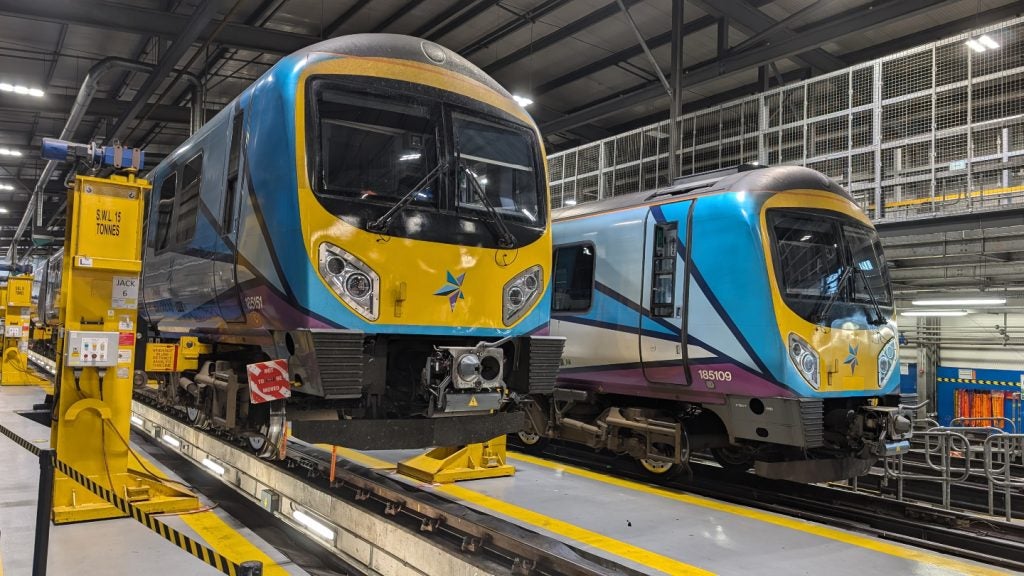UK rail operator Transpennine Express (TPE) has said it will restore services it cut in December 2023 at the end of the year after making progress on improving reliability and driver training.
Managing Director Chris Jackson said several services, including the quarter-hourly fast train between Manchester and Leeds, would be put back into operation in December 2024, in line with commitments made by TPE last year.
Speaking at the company’s Ardwick depot in Manchester, Jackson told Railway Technology he was "confident" TPE would reach the necessary requirements on station readiness and clear a sufficient amount of its driver training backlog to be able to relaunch the services during the next timetable change.
TPE, which was brought into state control in May 2023 after years of criticism over its performance record, will also adjust the use of its fleet across its network, taking steps such as ending some of its northern services early in Redcar instead of Saltburn to allow for the use of more of its longer trains in Sheffield.
When it first announced the plan to reduce operations across its network, TPE was criticised by political leaders in the north of England who expressed concern that the company would not be able to deliver the capacity needed for many of its services.
Jackson said the commitment made to bring back the cancelled services at the end of this year showed the company was now delivering on the promises it made during a meeting with the Transport for the North body in September 2023 to address its issues within six to 12 months.
During the media day at the Ardwick depot, TPE also provided an update on some of its fleet improvement efforts with Paul Staples, engineering, safety & sustainability director, revealing its fleet of Class 185 trains would soon be getting an internal refurbishment to address aging interiors.
Staples spoke up on the company’s advancement and sustainability projects including its recent work with Hitachi Rail on a diesel-to-battery conversion project which is currently testing a bi-mode train using lithium-ion batteries for propulsion.
He said the company had “found great value” in bi-mode trains due to their ability to keep running when other trains on the network are forced to stop due to issues with overhead power supply lines.
He said: “It is more complex, but you have more redundancy and resilience in these trains, so it feels like we have a strong case, and we’re excited to see what the batteries can do.
“Though we may end up concluding that the technology is not yet mature, our feeling from the results so far is that it's a strong candidate for future propulsion technologies.”









